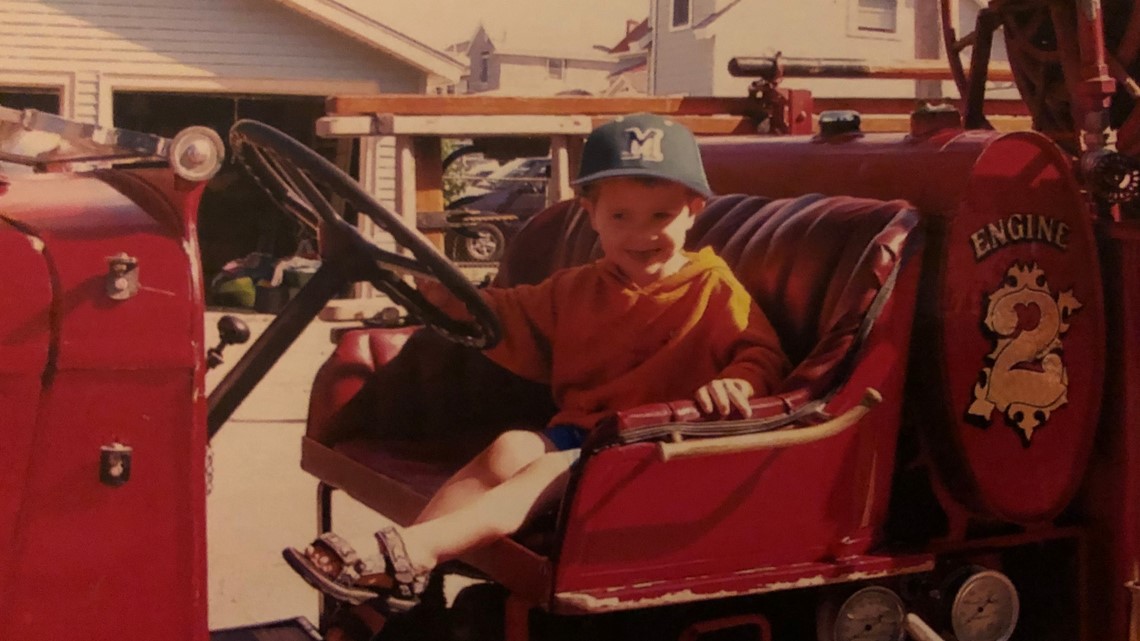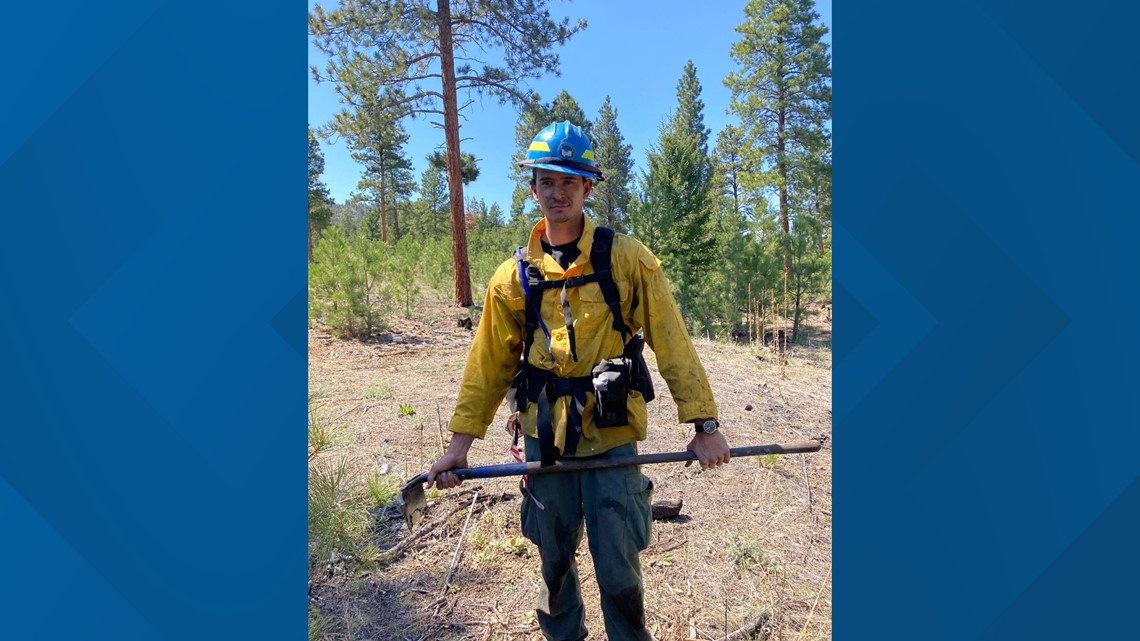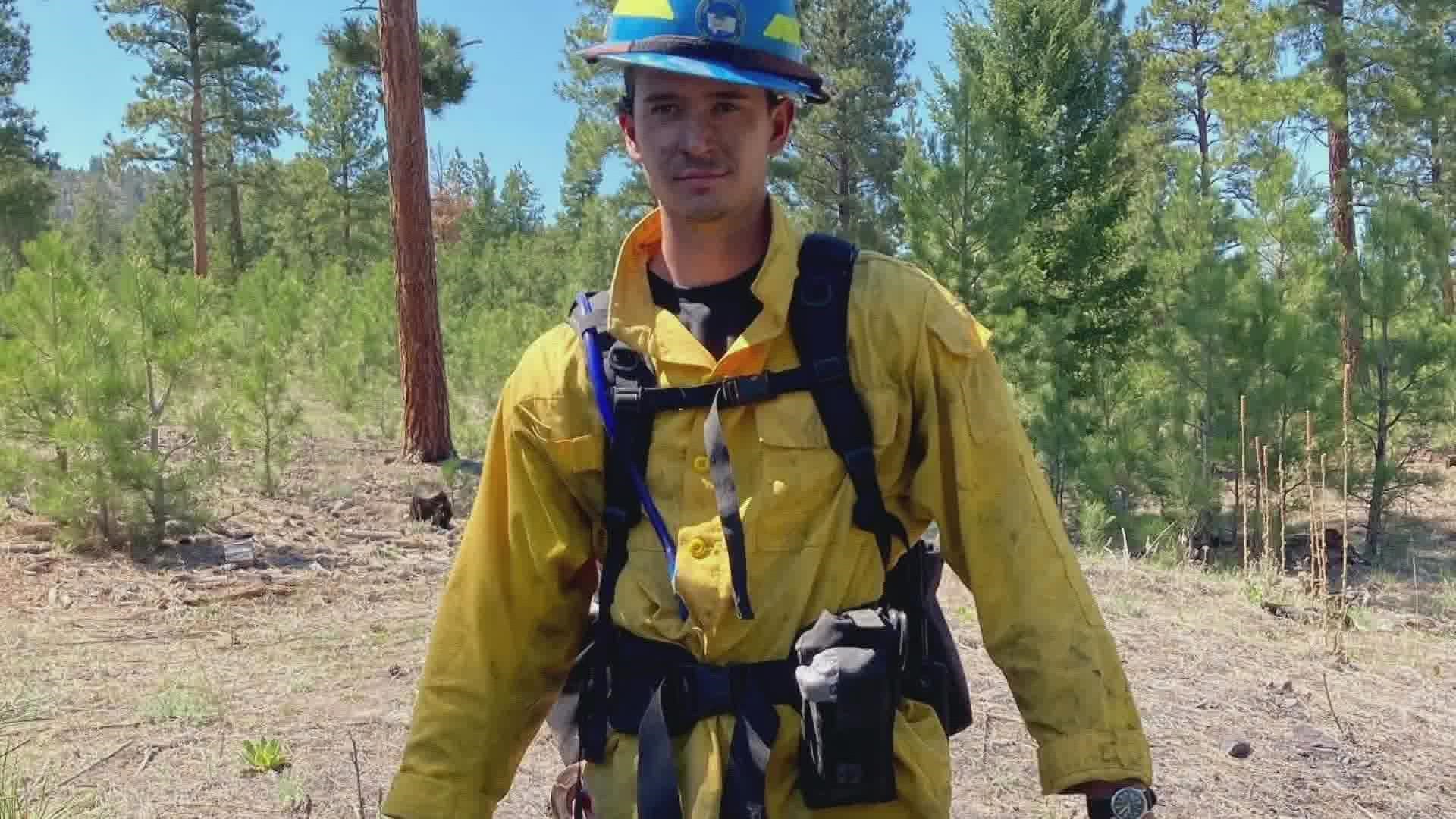SOUTH PORTLAND, Maine — For plenty of little kids, their heroes are those who wear uniforms and protect us – police officers, firefighters, first responders. For Jack Kingsley, those heroes happened to be right in his own family.


He has followed in those footsteps. Jack recently returned from fighting the wildfires out West.
"In my family, it goes back now four generations, including me," he said. "My great grandfather fought fire, my grandfather was a chief, my uncle was in the department as well as an officer."
He graduated from high school in 2020, and last spring, he signed up and headed out to Montana. There is a training period, but training is actually ongoing.
"We call it being rookie-d in. You know, your first year. You show up and you're gonna get a lot of information in a short amount of time, kind of like drinking from a fire hose but ... you’re gonna get what we call basic critical training, just everything from how winds work on mountains, topographical influences to fire behavior to fuel models, just kind of understanding the basics of how to work, what’s going on in the environment, a lot of safety talks as well," Jack said.
The training also includes learning how the engines work, how pumps work, and how to use a chainsaw. And eventually, fighting an actual fire.
"We’ll do something called ‘tow head,'" he said. "It’s a live burn, so no matter what, you’re gonna get some fire experience. Like really understand what it feels like to have that heat in your face, have that smoke goin’ on, just kind of get the taste of the real thing. You’re always training a little bit, you know? Every day you’re trying to learn something new. Especially in that job. But, the critical training takes about two to three weeks."


Jack was located in and around Helena, moving around the state as needed. Every day, his gear included a hard hat, fire boots, and pants they call ‘greens and yellows’ made of non-burnable material. He might carry a chainsaw, line gear, and a backpack with a meal, snacks, water, and some first aid material.
Jack puts it this way: "Obviously I was just a rookie and some people have 10, 15 years in, and the more you are near fires, the more you can understand fire behavior. You can almost meet it, you can understand it, you can think what’s gonna happen next with pretty good accuracy."
The teams that fight these fires are skilled, organized, and in constant radio communication on several channels.
"You can think about it the same way as the military," he said. "All the way down to ... to boots on the ground. There is always an element of chaos, there’s a lot of moving parts, you know helicopters, and air attack, multiple crews, and different agencies, but for the most part, you can always figure out your command system and they try very hard to create that seamlessly."
"Sometimes you get the feeling that you might lose it, we’ll say? Because, you know, it’ll make a run, jump the line, be gone, that would be called losing it, which is okay. Sometimes you can’t catch it. It’s a force of nature," he said.
Jack sees the demand for people doing this kind of work only growing in the coming years.
"The fires we have now are not the fires we had 50 years ago, 20 years ago. It’s just gonna get worse and worse. They have a large combination of factors that are creating really erratic and hardcore fire behavior. The season is getting longer. You’re gonna need people to fight ‘em, experienced people to fight ‘em."
I wondered if Jack ever felt afraid.
"I mean, yeah, I think sometimes things can get a little bit hairy," he said. "I put a lot of faith in the workers, and my crew members, especially my engine boss. I really felt safe rolling with those guys. They had a lot of experience, and I didn’t think they were ever gonna put me in a bad position. You do what you can, while staying as safe as you can. You’re gonna do your best regardless. You definitely feel like you are making an impact in a very humble way."
When Jack left, the season was starting to slow down a bit, but of course these fires can flare up at any time. He said the average age on his crew was 23 to 25 years old, and that women were also on the crew in various capacities. We talked about trying to measure the impact of fighting fires. The sense of satisfaction for Jack is knowing that thanks to the crew he was a part of, families still had their homes, their animals, their livelihoods.

